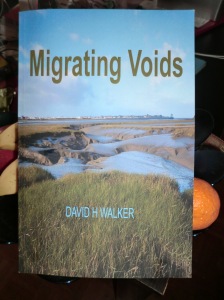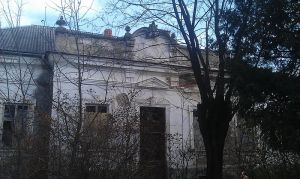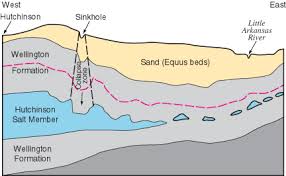 Migrating Voids is at its heart a coming-of-age story of 18-year-old Gideon Bradshaw, a young man who lives with his mother and stepfather, who at the beginning of the story remains in the latter stage of adolescence, remote and disconnected from his family and unwilling to view them from any other perspective that that of indifference and mild resentment.
Migrating Voids is at its heart a coming-of-age story of 18-year-old Gideon Bradshaw, a young man who lives with his mother and stepfather, who at the beginning of the story remains in the latter stage of adolescence, remote and disconnected from his family and unwilling to view them from any other perspective that that of indifference and mild resentment.
“Two A levels and a place on an HND course at Technical College should have boosted his confidence, but no: he still felt that people were judging him and finding him wanting.”
Ambivalent about his studies, he takes up a part-time job at the local pub, where a chance encounter with an inebriated out-of-town pharmacist, opens his eyes to pathways he had not considered, a change in direction that once he decides upon it, resonates within him and ignites his interest in his future studies and the local area.
“Then he took a weekend job waiting-on at the Knott Arms, and discovered something he could do well. Not that he was the world’s best waiter; he simply found that he slipped into the role with an ease that surprised him.”
Granville is an older man, who owns a chemist’s shop in Manchester and often visits his sister, the widow who owns Harkcliffe Hall. When he falls asleep in his chair after another solo drinking session, the Bar Manager gets him to surrender his keys and asks Gideon to drive the loner home.
After delivering him safely to his sister, the widow Judith also known as Lady Leybourne, invites Gideon to visit again and proposes alternative work for him, to assist her in the organisation and indexing of her late husband’s business papers so that they can be passed on in time to the appropriate beneficiary.
In doing so Gideon develops an interest in the documentation which reveals the history of the estate and the area, the business that supported it and the controversy surrounding the underground salt mines that lead to the demise of the business.
Granville too, takes Gideon under his wing, inviting him to walk around the land, taking him to a somewhat clandestine dinner, leaving the reader questioning the older man’s motives. Gideon is appreciative of both the siblings attentions and doesn’t wish to undermine his good fortune having found an interesting job and a generous employer, however there is an air of unease that makes him watchful and ever more curious despite the growing disquiet that lurks on the edge of his consciousness.
Lady Leybourne is childless, thus the question of an heir hangs over the Estate and Gideon, a motiveless outsider, becomes drawn into a complex web of secrets and intentions that bring an air of menace to the surface of the dreamy existence he has been dwelling within.
“He had envisaged the possibility of entering their lives, but invisible chasms had opened up between him and them. Of course he was sharing secrets separately with Judith and Granville, but was bound to each in a complicity that excluded the other.”
It is something we take for granted, that the ground beneath us is solid and immovable and as Gideon walks with Granville across the land and listens to him speak, he too becomes aware of the falsity of that notion, as events of the past that no one ever speaks about are brought into the present, the land form around them seen in a new light as their secret history is unveiled.
“Gideon was becoming increasingly aware that the world he knew and had lived in up to now was a thin veil on the surface of the real world.”
 The presence of “voids” has both a physical and psychological aspect, representing that which exists and that which is unknown or hidden, be it the physical landscape and its brutal history, the people who live within it, their past and the secrets they harbour, voids that threaten destruction regardless of their form or origin.
The presence of “voids” has both a physical and psychological aspect, representing that which exists and that which is unknown or hidden, be it the physical landscape and its brutal history, the people who live within it, their past and the secrets they harbour, voids that threaten destruction regardless of their form or origin.
Just as with Gideon’s coming of age, the novel is about noticing what was already there, that which is hidden from view and will remain so until we scratch beneath the surface, unless we are open to suggestion, to ideas, to understanding how what came before has an effect on what we see and understand now.
Migrating Voids is a brilliantly conceived story that starts at a leisurely literary pace, then surprises with its shocking, tidal revelation keeping the reader captivated and interested until its climatic end.
Unearthing its mystery, the reader can’t help being curious about its historical origin, the story inspired by real landscapes and historical fact, the book dedicated to the Project Wyre Group, a campaign of opposition to the storage of up to 900 million cubic metres of natural gas in 19 underground salt caverns at Preesall Saltfield.
All those sinkholes suddenly appearing all over England? This story could not have been better timed, than to have appeared at the same time as those other voids are opening up in the urban landscape.
 Note: Thank you to the author Professor David H Walker, an expert on French literature and culture, whom I met at a lecture he gave on André Gide’s The Vatican Cellars. I noted he’d recently published a novel and was delighted to be offered a copy after having the opportunity to meet him and discuss common literary interests. His recent excellent review of the newly translated The Vatican Cellars appeared in The Times Literary Supplement on 10 December 2014.
Note: Thank you to the author Professor David H Walker, an expert on French literature and culture, whom I met at a lecture he gave on André Gide’s The Vatican Cellars. I noted he’d recently published a novel and was delighted to be offered a copy after having the opportunity to meet him and discuss common literary interests. His recent excellent review of the newly translated The Vatican Cellars appeared in The Times Literary Supplement on 10 December 2014.

